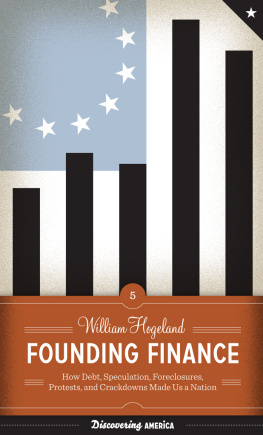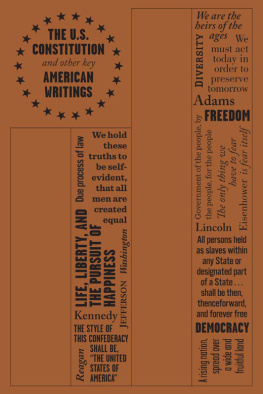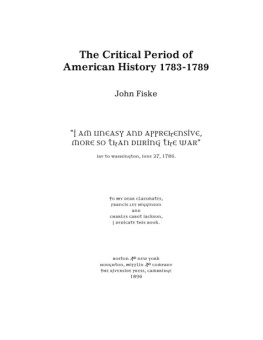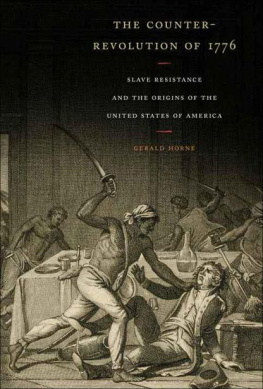FOUNDING FINANCE

Mark Crispin Miller, Series Editor
This series begins with a startling premisethat even now, more than two hundred years since its founding, America remains a largely undiscovered country with much of its amazing story yet to be told. In these books, some of Americas foremost historians and cultural critics bring to light episodes in our nations history that have never been explored. They offer fresh takes on events and people we thought we knew well and draw unexpected connections that deepen our understanding of our national character.
FOUNDING FINANCE
How Debt, Speculation, Foreclosures, Protests, and Crackdowns Made Us a Nation
William Hogeland

University of Texas Press
AUSTIN
Copyright 2012 by William Hogeland
All rights reserved
Printed in the United States of America
First edition, 2012
Requests for permission to reproduce material from this work should be sent to:
Permissions
University of Texas Press
P.O. Box 7819
Austin, TX 78713-7819
www.utexas.edu/utpress/about/bpermission.html
LIBRARY OF CONGRESS CATALOGING-IN-PUBLICATION DATA
Hogeland, William.
Founding finance : how debt, speculation, foreclosures, protests, and crackdowns made us a nation / by William Hogeland.1st ed.
p. cm.(Discovering America)
Includes bibliographical references and index.
ISBN 978-0-292-74361-8 (alk. paper)
ISBN 978-0-292-74450-9 (e-book)
ISBN 978-0-292-74575-9 (individual e-book)
1. Finance, PublicUnited StatesHistory17891801. 2. Debts, PublicUnited StatesHistory17891801. 3. United StatesPolitics and government17891797. 4. United States. Constitutional Convention (1787) I. Title.
HJ247.H64 2012
336.7309033dc23
2012023318
oh the cuckoo shes a good bird and she warbles and she flies and she never hollers cuckoo till the fourth day of July
TRAD.
CONTENTS
)
FOUNDING FINANCE
THE FOUNDERS, FINANCE, AND US (2012)
O n the first day of the meeting that would become known as the United States Constitutional Convention, Edmund Randolph of Virginia kicked off the proceedings. Addressing his great fellow Virginian General George Washington, victorious hero of the War of Independence, who sat in the chair, Randolph hoped to convince delegates sent by seven, so far, of the thirteen states, with more on the way, to abandon the confederation formed by the states that had sent themthe union that had declared American independence from England and won the warand to replace it with another form of government.
Our chief danger, Randolph announced, arises from the democratic parts of our constitutions.
This was in May of 1787, in Philadelphia, in the same ground-floor room of the Pennsylvania State House, borrowed from the Pennsylvania assembly, where in 1776 the Continental Congress had declared independence. Others in the room already agreed with Randolph: James Madison, also of Virginia; Robert Morris of Pennsylvania; Gouverneur Morris of New York and Pennsylvania; Alexander Hamilton of New York; Washington. They wanted the convention to institute a national government. As we know, their effort was a success.
We often say the confederation was a weak government, the national government stronger. But the more important difference has to do with whom those governments acted on. The confederation acted on thirteen state legislatures. The nation would act on all American citizens, throughout all the states. That would be a mighty change. To persuade his fellow delegates to make it, Randolph was reeling off a list of what he said were potentially fatal problems, urgently in need, he said, of immediate repair. He reiterated what he called the chief threat to the country. None of the constitutionshe meant those of the states governmentshave provided sufficient checks against the democracy.
The term democracy could mean different things, sometimes even contradictory things, in 1787. People used it to mean the mob, which historians today would call the crowd, a movement of people denied other access to power, involving protest, riot, what recently has been called occupation, and often violence against people and property. But sometimes democracy just meant assertive lawmaking by a legislative body staffed by gentlemen highly sensitive to the desires of their genteel constituents. Men who condemned the working-class mob as a democracy sometimes prided themselves on being democratical in their own representative bodies.
What Randolph meant that morning by democracy is clear. When he said our chief danger arises from the democratic parts of our constitutions, and none of the constitutions have provided sufficient checks against the democracy, he was speaking in a context of social and economic turmoil, pervading all thirteen states, which the other delegates were not only aware of but also had good reason to be urgently worried about. So familiar was the problem that Randolph would barely have had to explain it, and he didnt explain it in detail. Yet he did say things whose context everyone there would already have understood.
We dont. Thats our problem with founding finance.
The list of things Randolph found dangerous are things we dont care much about today. Paper money? Problems with the federal impost? They sound obscure, dated, and not very problematic. When we think about the Constitutional Convention we like to think about the creation of the American presidency and the two houses of Congress, or about things that came later, like the First Amendment.
But without comprehending the finance and economic issues so important to the founders, we cant connect realistically with our founding. In 1786, a rebellion had occurred in Massachusetts, the so-called Shays Rebellion; it was over public finance policy, personal debt, taxes, and widespread foreclosures. In 1785, a radically populist government in Pennsylvaniaoperating in the same building where the delegates were meeting in 1787had withdrawn the charter for a central bank. The confederation Congress had a close relationship with that bank; the bankers got it back, but the scare both to the Congress and to the upscale investing class was real. Meanwhile, a radical convention in Kentucky called on small farmers and laborers throughout the whole west to unite against big eastern money. Ordinary people throughout the country, long barred from political powerthe democracywere organizing to restrain wealth and foster equality. Such were the effects of what Randolph called the imbecilities of the confederation. The representative state legislatures were weak in resisting the onslaught. Only a national government, Randolph and others gathered in Philadelphia believed, could correct that.
M ost histories of what led up to and then went on in Philadelphia in the summer of 1787 dont mention Randolphs remarks about the all-important need to check democracy by forming a national government. They focus almost exclusively on the Shays Rebellion, without exploring its real economic causes, and on squabbles among the states over borders and commerce. We say America just needed a stronger government. The financial wracking of America in the 1780s, the open struggle between ordinary people and upscale investors, was edited out of our common memory long ago.
Lately, however, founding finance is back in the public debate. Its entered our political arguments, embedded itself in our political campaigns, and plays in the 2012 presidential election. The Tea Party movement was first, not only to make protest over economic ideas a hot story again, starting in 2008, but also to connect economic protest with elemental events in our founding period. The tri-cornered hats, the placards with pictures of great founders, the take America back language, and of course the reference in the movements name to the Boston Tea Party of 1773 make an insistent claim on what the Tea Party movement promotes as original American values. Joined by those who call themselves constitutional conservatives, the Tea Party tells us that small government, low taxes, no public debt, and little government spending were elemental purposes in our founding as a nation.
Next page






